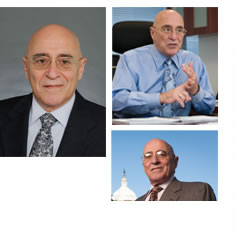
It’s hard to take issue with the rash of anti-lobbying rhetoric that regularly appears in the media without sounding self-serving or defensive. After all, that’s how we make a living.
Fact is, those of us at CRD Associates–and I dare say most of our colleagues in this profession–are just as offended as anyone over any corruption and scandal that surfaces around lobbyists. Like everyone else, we watched as the Jack Abramoff story unfolded, disgusted by the fraud and corruption that permeated the whole sordid affair.
We told ourselves and anyone who would listen that Abramoff was a thief and a manipulator, not a lobbyist. That he and his co-conspirators got their just desserts. And though it meant a lot more paperwork for us, we wholeheartedly supported new laws spawned by the Abramoff trial, such as the Honest Leadership and Open Government Act, designed to increase transparency and accountability.
Soon after he was elected President Obama followed through on campaign promises to restrict lobbyists’ participation in the government process. On his first day in office, he issued Executive Order 13490, which imposed a two-year ban on lobbyists entering the administration from working on issues on which they had lobbied. It also precluded administration officials leaving government from lobbying while he is President. A few months later, federal agencies were discouraged from appointing policy experts who also happened to be registered lobbyists to serve on federal advisory panels.
You don’t like lobbyists, Mr. President. We get that. What we don’t get are the sweeping generalizations and flawed assumptions perpetuated by the media under the guise of promoting “good government.”
Think Progress recently reported about a forthcoming article in Perspectives on Politics, researched and written by Martin Gilens of Princeton University and Benjamin I. Page of Northwestern University. According to Gilens and Page, America’s policymakers respond almost exclusively to the preferences of the economically advantaged. The two scholars matched a data set of policy issues up against surveys of public opinion and concluded “ordinary citizens…have little or no independent influence on policy at all.” Think Progress took the finding one step further, titling their blog, “The government listens to lobbyists [emphasis added] and the wealthy, not you and me.”
Vilifying lobbyists. How original.
True, it’s rare for one ordinary person to make a difference, but it happens. Ever heard of America’s Missing: Broadcast Emergency Response? You might recognize it as AMBER Alert, named after Amber Hagerman, the 9-year-old Texas girl who was abducted and murdered. Or Geraldine Dietz Fox, a hearing impaired native of Pennsylvania who was frustrated by how little was being done to address deafness and other communication disorders, Ms. Fox came to Washington in 1986 to launch a one-person campaign. A little more than two years later Congress passed and President Reagan signed into law legislation creating the National Institute on Deafness and Other Communication Disorders.
Yes, one-person lobbying campaigns are rare. But there certainly are plenty of examples of individuals banding together to get a problem addressed. CRD Associates has been proud to work with dozens of grassroots-based groups representing hundreds of “ordinary” citizens—parents of children with rare diseases, health care providers serving our most vulnerable, scientists, educators—who saw a wrong and worked to right it under the guidance of a professional—a lobbyist.
Advocating a cause–alone, in a group, or with the help of a lobbyist–represents the very core of our representative government and our constitutionally guaranteed freedoms: The First Amendment right of every citizen to petition our government. Many, like President Obama, characterize themselves as community activists. But isn’t that a lobbyist in all but name? Lobbyists just happen to do it for a living.